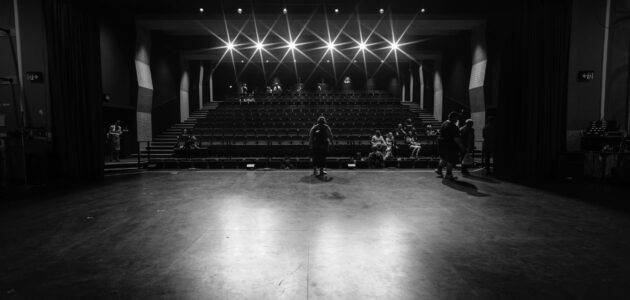
Stage Acting Basics
Know what you want
The first thing I ask myself after reading a script is “What does my character want in each scene?”. This is the simplest way of discovering your character’s objective. Discuss what you think your character wants with your director before running the scene. If you are both on the same page, the director will be able to suggest different ways of achieving what your character wants without making it feel like criticism.
Know how you are trying to get what you want
How does your character get what they want? I like to use the word tactics. What tactics does your character use to achieve their objective? I will often refer to the actors thesaurus to find actions/verbs that I can convert into tactics. Tactics may change from line to line. In fact they should change, and that change should rely on how the character you are talking to reacts to what you’re saying. If your character is destined to fail in their pursuit of their objective, don’t be afraid of intentionally playing a tactic that doesn’t work.
Know where you’re coming from and where you’re going
There is literally nothing worse than watching an actor enter or exit stage without a clear purpose. If you know what you want in a scene, the entrance should be easy. Leaving a scene can be slightly more difficult to justify. Work out why your character is leaving a scene. Is it to get away from the other characters? Is it to go and do something somewhere else? Justify your exits!
Know the story
Stage acting is about telling a story with a group of people to (hopefully) and even bigger group of people. It is not a solo pursuit. When you are acting on stage it’s really important to know the story. And by that I mean the story your director is telling, not your interpretation of the script. That is an essential differentiation and a common mistake. The story that you, your cast mates, the lighting designer, the sound designer, the set designer, the costume designer, and the dramaturgy are telling is the vision and story of the director. Keep your choices functional and in-line with that story.
Co-operate in and out of character
Co-operation is key when you are acting on stage. I’m not saying the characters need to be best friends. Of course not. But even when there is conflict between characters on stage, the actors must be cooperating. Theatre is the most fun when you are fully committed to achieving your characters goals, while having fun in a safe and cooperative environment. Constructive debate is an essential part of rehearsal, but don’t take it too far. Leave space and time for less vocal members of your group. Introverts are people too!

Leave a Reply